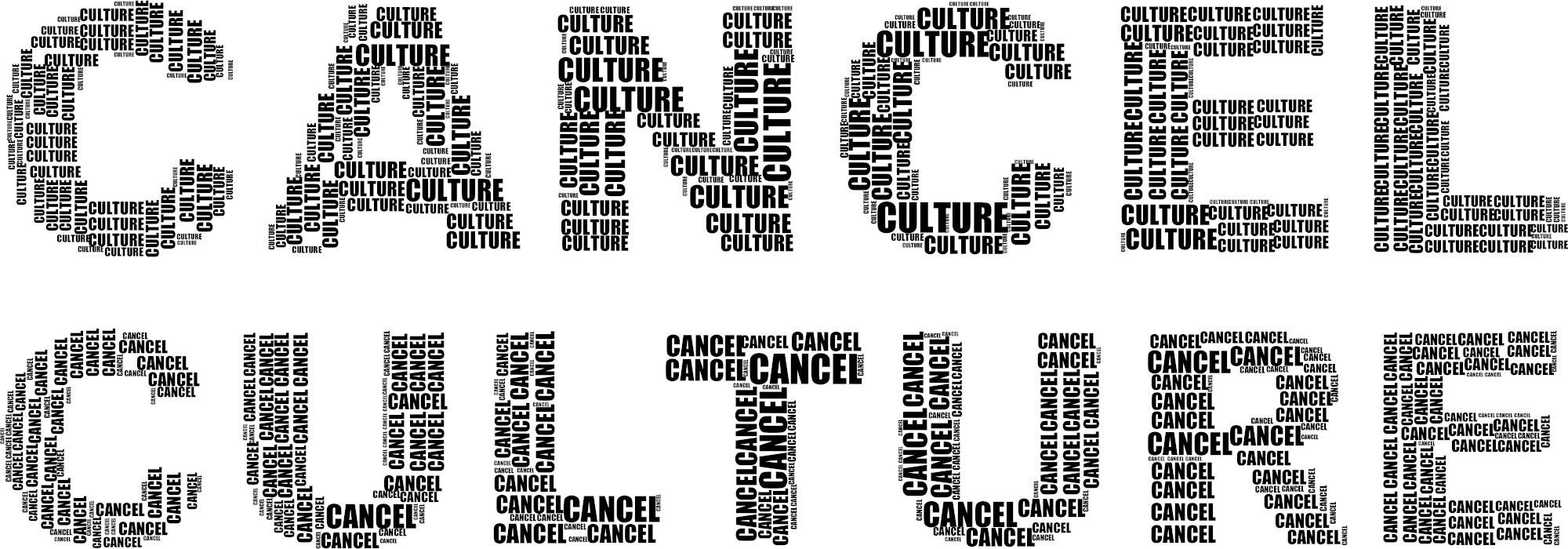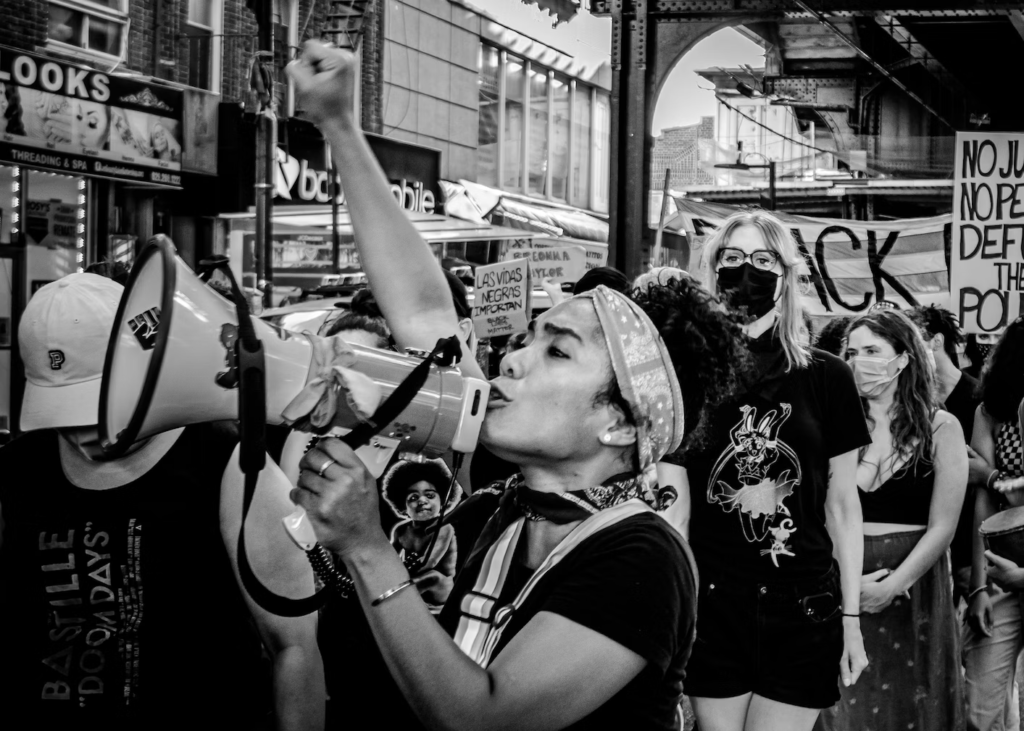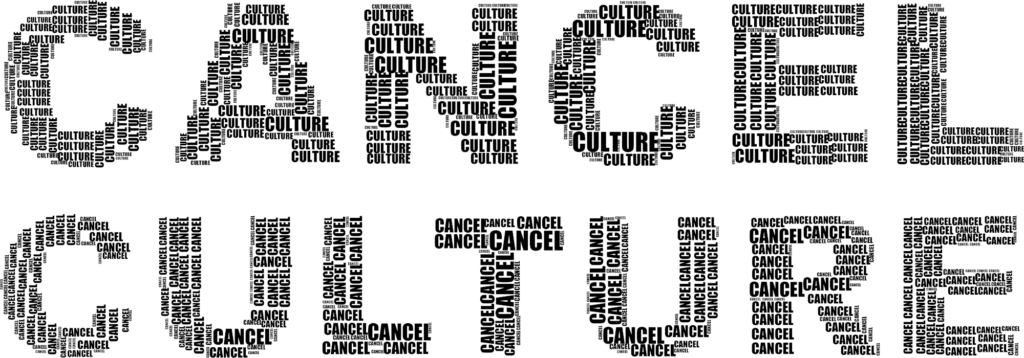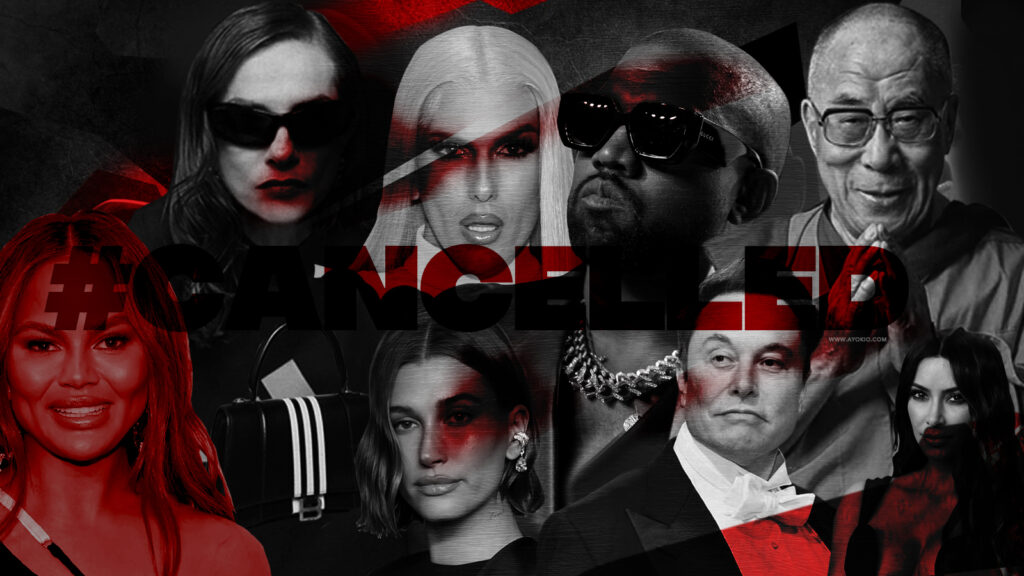
When cancel culture came to town
The rise of cancel culture – the online phenomenon that has everyone walking on eggshells. It seems like every other day, a new celebrity or public figure is getting “cancelled” for being on the wrong side of {insert topic, cause or stance}.
‘Cancel culture’ refers to the practice of publicly calling out and boycotting individuals or organisations who have made offensive or controversial statements or actions. This phenomenon has gained traction in the age of social media, with Twitter, Instagram, and Facebook serving as platforms for people to express their outrage and call for accountability. However, the question remains: what drives this behaviour, and why has it become so prevalent in our society?
From Kim Kardashian and Balenciaga to Kanye West and Elon Musk, no one is safe from the wrath of social media judgement and cancelation. Just this week, the Dalai Lama himself got caught slipping, I mean it’s not the first time – back in 2019 the internet called to cancelled him after his remark that a female successor must be ‘attractive’. Ok, hun!
But why has cancel culture become such a big thing? Let’s explore the psychological and social factors that underpin cancel culture and some possible solutions to mitigate its negative effects.
1. Fandom and Social Outrage 💥
Fandom is a double-edged sword, cutting both ways. It can be a beautiful thing, a way for people to connect over shared passions and interests. But on the other hand, it can be a dangerous incubator for toxic behaviour and obsessive devotion.
The rise of fandom is inextricably linked to the rise of social media, where we can gather to share our love (or hate) for celebrities, movies, political parties, and so on. The internet has created more access and visibility into the lives of our favourite personalities – more than ever before. I mean, remember when celebs were these unattainable god-like beings with mysterious social and political views? Now fans have VIP access and can connect with each other in ways that were previously impossible, forming communities that span the globe.

But with this newfound power comes great responsibility. The danger of fandom lies in its ability to blur the line between reality and fantasy. Fans become so invested that they lose sight of reality and become too obsessed with their favourite celebrities or fictional characters, leading to harassment, doxing, and even death threats. This behaviour can be especially harmful to marginalised groups, who may already face harassment and discrimination in their daily lives.
We’ve seen ‘Social outrage’ become a powerful force, a fire that burns hot and spreads quickly. It is fuelled by the anonymity of the internet, which allows people to vent their anger without any real consequences. This outrage can be sparked by anything, from a perceived injustice to a controversial opinion, and it can quickly escalate into a full-blown witch hunt.
Cancel culture is the manifestation of this social outrage, the point at which people decide to act against someone who has said or done something they disagree with. It can take many forms, from public shaming to boycotts to calls for the person to be fired or ostracised from society. One of the problems with cancel culture is that it often goes too far, leading to harassment, threats, and even physical harm to the target.
The rise of fandom, social outrage and cancel culture is a symptom of a larger problem: the erosion of civil discourse in our society. We have lost the ability to have meaningful conversations and disagreements without resorting to personal attacks and aggression. Social media has only exacerbated this problem, providing a platform for people to express their anger and frustration without any real consequences.

The combination of fandom and outrage can lead to a toxic and polarising culture where people are pressured to take extreme positions and demonise anyone who disagrees with them. Cancel culture becomes a tool for enforcing conformity and punishing dissent, with little room for nuance or forgiveness.
This, in turn, creates a ripple effect. Other people who may not have even been aware of the situation are suddenly dragged into the drama and pressured to pick a side. It becomes less about the actual issue at hand and more about aligning with a particular political or social ideology.
Take the recent situation with Will Smith. The actor was criticised for working with director Antoine Fuqua on a film about slavery. Some people were outraged that a black man would be involved in telling a story about slavery, while others defended Smith’s right to work with whomever he wants. The situation quickly spiralled, with people taking extreme positions and attacking each other online.
2. The need to stay relevant 🤳
Staying on the right side of controversy can be lucrative. If you’re a celebrity or brand seeing their stardom or relevance dying out, you can needlessly share a popular opinion on social media and boom, you’re an ambassador for said issue or topic. You’re relevant, again.
Taking a stance has become so normalised, that companies and celebrities intentionally take a stance on social and political issues to gain brownie points. While this kind of virtue signalling is often noticed, most get away with it.
You’re either defending the right thing, but on the wrong side, or defending the wrong thing, on the right side. Or worse, you’re the devil – defending the wrong thing, on the wrong side.
This new ‘normal’ has broken something as well. An entire community could misjudge something and end up defending something without looking at the facts and getting greater context. Even when evidence proves otherwise, people often fall into the trap of making public announcements, accusations create the wrong kind of public support for people who should be punished for their actions.
If we look at how polarisation is growing, it does seem like we’ve entered the post-truth era, where different groups of people will have their own truths. It’s looking tough, if you take a stance on something, you’re likely to be punished by opposing groups. If you say nothing and remain stance-less, you could be punished still.

3. Group Psychology and Identity 🪢
Another factor that contributes to cancel culture is group psychology and identity. Social identity theory suggests that people derive their self-esteem from their membership in social groups, such as race, gender, nationality, religion, or political affiliation. When someone attacks or insults a group that we identify with, we may experience what is known as social identity threat, which can trigger defensive or aggressive behaviour.
With cancel culture, people may perceive certain statements or actions as threats to their group identity and react with outrage and retaliation. For example, when Kanye West expressed his support for Donald Trump, many fans and critics accused him of betraying his black identity and supporting a racist president. This led to a backlash against West and a call for his cancellation, with some fans even burning his merchandise in protest.

Group identity can also lead to a phenomenon known as groupthink, where members of a group conform to the dominant opinions and beliefs without questioning them. In cancel culture, people may feel pressured to adopt the prevailing narrative and cancel anyone who deviates from it, even if they may have valid reasons or arguments. This can create a chilling effect on free speech and diversity of opinion, as people may self-censor or avoid controversial topics for fear of being cancelled.
4. Moral Psychology and Moral Grandstanding 🦄
Cancel culture can also be understood in terms of moral psychology and moral grandstanding. Moral psychology refers to the psychological processes that underlie moral judgments and reasoning, such as empathy, fairness, harm, and purity. When someone violates these moral values, people may perceive them as immoral, and feel compelled to express their disapproval.
Moral grandstanding, on the other hand, refers to the act of making moral statements or actions for the purpose of impressing others or gaining social status. When people engage in moral grandstanding, they may be more interested in signalling their virtue than in promoting justice or fairness. Cancel culture can be an environment for moral grandstanding, as people may use it as an opportunity to demonstrate their moral superiority and gain social validation from their peers.
This can lead to moral overreach, where people go beyond the reasonable bounds of moral criticism and engage in excessive or disproportionate punishment. For example, when Kim Kardashian posted a photo of herself wearing braids, some critics accused her of cultural appropriation and called for her cancellation. While it is important to acknowledge and address issues of cultural sensitivity and respect, the backlash against Kardashian may have been disproportionate to the offence and may have been driven more by moral grandstanding than by genuine concern for cultural appropriation.

5. The Role of Technology 📱
The rise of cancel culture can also be attributed to the affordances and limitations of technology. Social media platforms such as Twitter, Instagram, and Facebook have created new opportunities for people to express themselves, connect with others, and mobilise for social causes. However, these platforms also have limitations, such as the lack of context, the amplification of emotional expression, and the reinforcement of echo chambers.
The lack of context can lead to misunderstandings and misinterpretations, as people may react to a statement or action without fully understanding the intent or context behind it. This can create a snowball effect, where outrage and condemnation build upon each other, without any room for dialogue or clarification.
The amplification of emotional expression can also lead to a distorted perception of reality, where the most extreme and emotional voices dominate the conversation, and the more moderate or reasoned voices are drowned out. This can create a skewed view of the world, where issues are framed in black-and-white terms, and complex or nuanced perspectives are ignored or dismissed.
Finally, the reinforcement of echo chambers can create a sense of tribalism and confirmation bias, where people are exposed only to views that align with their own and are shielded from alternative perspectives or dissenting opinions. This can lead to a self-reinforcing cycle of outrage and intolerance, where people become more entrenched in their views and less willing to engage in dialogue or compromise.

6. Possible Solutions 💡
Given the negative consequences of cancel culture, it is important to explore possible solutions that can mitigate its harmful effects while preserving the values of free speech, diversity, and mutual respect. Some possible solutions:
Cultivate Empathy and Dialogue
One of the most effective ways to address cancel culture is to cultivate empathy and dialogue. Empathy gives us the ability to understand and feel the emotions and perspectives of others, even if we do not agree with them. Empathy is a gateway to dialogue, meaning engaging in respectful and open-minded conversation with people who hold different views or experiences.
By cultivating empathy and dialogue, we can create a more tolerant and inclusive culture, where people are willing to listen to each other and seek common ground, rather than demonise or call for cancellation. This requires a willingness to put aside our own biases and assumptions, and to approach others with a spirit of curiosity and humility.
Promote Nuance and Complexity
Another way to mitigate the negative effects of cancel culture is to promote nuance and complexity in our discussions and debates. This means acknowledging that issues are rarely black-and-white, and that there may be multiple perspectives or solutions to a problem.
By promoting nuance and complexity, we can avoid the pitfalls of moral overreach and groupthink and foster a culture of critical thinking and open-mindedness. This requires a willingness to embrace uncertainty and ambiguity, and to challenge our own assumptions and beliefs.
Hold People Accountable, but with Restorative Justice
Finally, we can address cancel culture by holding people accountable for their actions or statements, but with a focus on restorative justice rather than retribution. Restorative justice refers to the practice of repairing harm and restoring relationships, rather than punishing or excluding individuals. While we can acknowledge exceptions and extreme circumstances beyond restoration – if the default stance is one of restoration, I think we’ll be on to something!
By focusing on restorative justice, we can create a more compassionate and forgiving culture, where people are encouraged to take responsibility for their actions, learn from their mistakes, and make amends. This approach can be particularly effective for addressing issues of social justice and equity, where the goal is not just to punish wrongdoers, but to address systemic inequalities and promote healing and reconciliation.
However, it is important to note that restorative justice requires a willingness to listen, learn, and engage in dialogue, rather than simply impose a predetermined outcome. It also requires a recognition of the harm caused, and a commitment to making meaningful changes to prevent similar harm in the future.
7. Challenging Our Own Behaviour 🪩
Ultimately, addressing cancel culture requires a collective effort to challenge our own behaviour and attitudes, and to create a more inclusive and tolerant culture. This means being willing to acknowledge our own biases and blind spots, and to engage in self-reflection and self-criticism.
It also means being willing to challenge our own echo chambers and engage with diverse perspectives and experiences. This can involve seeking out alternative news sources, participating in cross-cultural exchanges, or simply being open to listening to people with different views or experiences.
Finally, it means being willing to take action to promote positive change in our communities and society. This can involve volunteering, donating to social causes, or simply speaking out against injustice and intolerance.
Conclusion 🤔
Cancel culture is a complex and multifaceted phenomenon that reflects the intersection of psychology, technology, and social behaviour. While it can serve as a powerful tool for addressing issues of social justice and equity, it can also lead to moral overreach, groupthink, and intolerance.
To address cancel culture, we need to cultivate empathy and dialogue, promote nuance and complexity, and focus on restorative justice rather than retribution. We also need to challenge our own behaviour and attitudes and create a more inclusive and tolerant culture that values diversity, mutual respect, and positive change.
As individuals, we have the power to shape our own behaviour and attitudes, and to contribute to a more just and equitable society. By challenging cancel culture and promoting positive change, we can create a more vibrant and inclusive culture that values free speech, diversity, and mutual respect.







